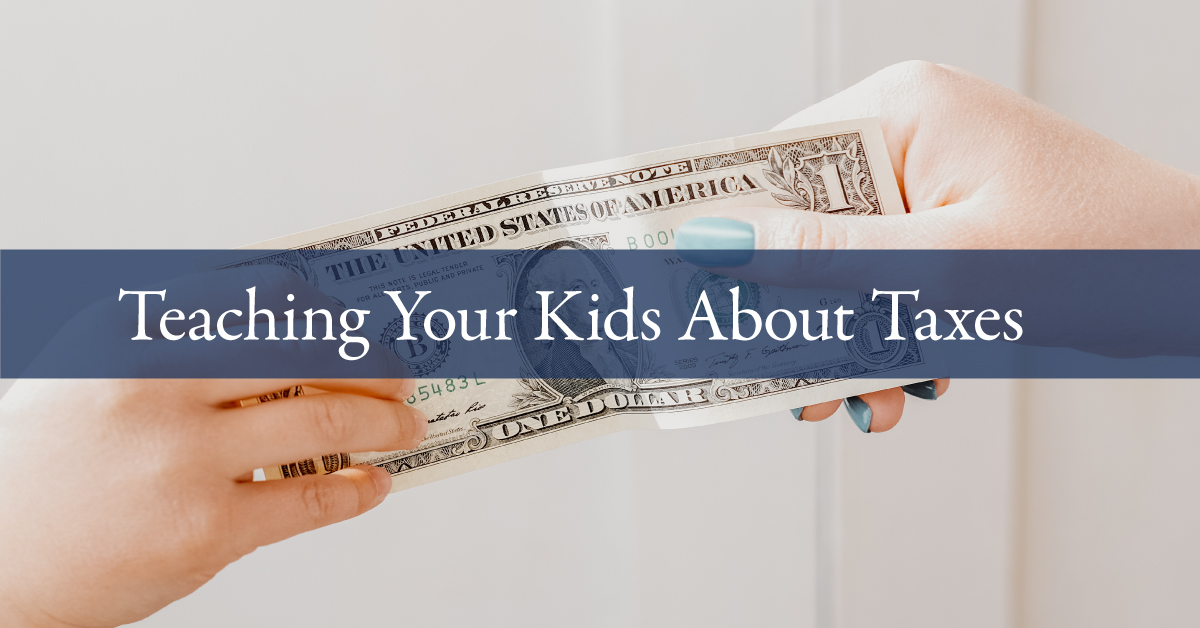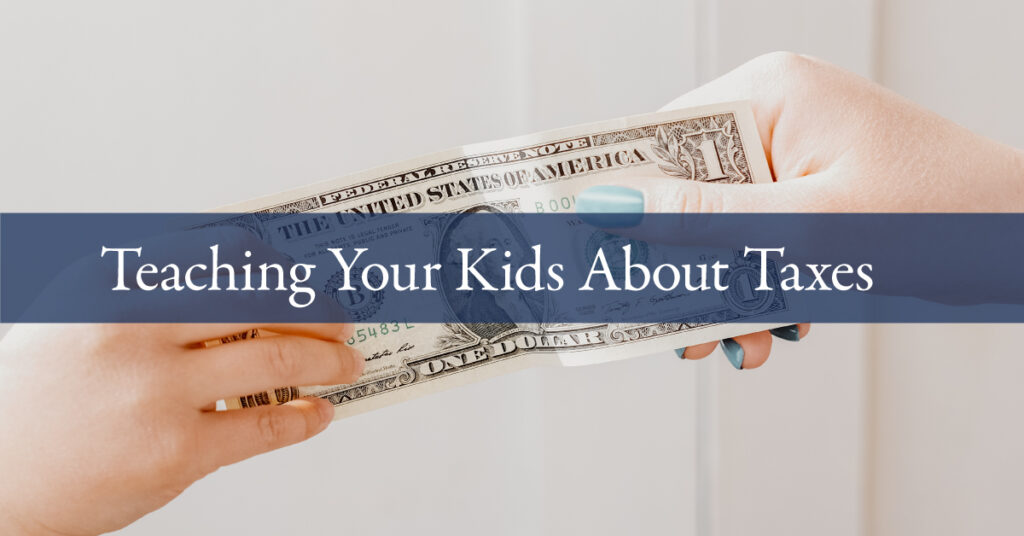
03 Mar Teaching Your Kids About Taxes

What do learning to ride a bike and financial literacy have in common? More than you’d think! While the world of finances may seem years away from childhood, one of the best ways to set your kids up for financial success is to teach them the ins and outs of money matters, and taxes are no exception. But how can you make such a big, complex topic approachable for your kids, let alone interesting? Start with these ideas for engaging, age-appropriate activities.
Preschool and Kindergarten
Understanding and filing taxes is a big topic for little minds! Make it fun, and create a calendar countdown to tax day to familiarize them with the concept. As tax day gets nearer, point out the government-funded infrastructure they are likely already excited about, such as public parks, school buses, and road construction or maintenance crews. Identify them as things paid for by taxes. Help them understand what happens on tax day by bringing them along to the post office to get your documents mailed out; bonus points if you let them lick or seal the envelope!
Elementary School-aged and Tweens
Children begin to explore their independence and understand larger numbers from age five and upwards. This is a great age to give them a task or “mission” and involve them in activities like grocery shopping. Ask them to keep track of pre-and post-sales tax prices. Not only can you use this to work on numeric value recognition with younger children (i.e., which price is higher?), but you can also encourage arithmetic skills by asking older children to calculate the tax price. Sales tax is a great introduction to taxation since kids can physically see it in action when shopping with you. Use this to familiarize them with the concept of paying taxes and introduce other types (income tax, property tax, etc.) with tweens who can grasp more complex topics.
Teens
Besides helping teens file their taxes after getting that first job, discuss the difference between passive and active income and some less obvious areas they can expect to owe taxes, like investments and royalties.
We’ve all fallen victim to impulse buys. Still, teens are especially susceptible since they’re at an age where responsibility and independence increase, but the prefrontal cortex (the part of the brain responsible for impulse control) hasn’t finished maturing. As your kids reach income-earning age, giving them money management tools for long-term success is crucial. Outline a savvy budget as follows:
● 50% for living expenses
● 10% for donations
● 15% for contributing to a retirement fund
● 25% for big-ticket purchases in the future
For more tips, check out The Meakem Group | Smart About Money: Your Child’s First Paycheck
Start Now!
No matter how young your children are, it’s never a bad idea to start teaching them the ins and outs of all things finance. Just like riding a bike, financial literacy is a skill you can help your child develop and practice. Repetition and consistency will help them grow those money-wise muscles. Life is full of surprises, but taxes don’t have to be one of them!
The foregoing information has been obtained from sources considered to be reliable, but we do not guarantee that it is accurate or complete, it is not a statement of all available data necessary for making an investment decision, and it does not constitute a recommendation. Any opinions are those of Traci Richmond and not necessarily those of Raymond James.
Raymond James and its advisors do not offer tax or legal advice. You should discuss any tax or legal matters with the appropriate professional.



